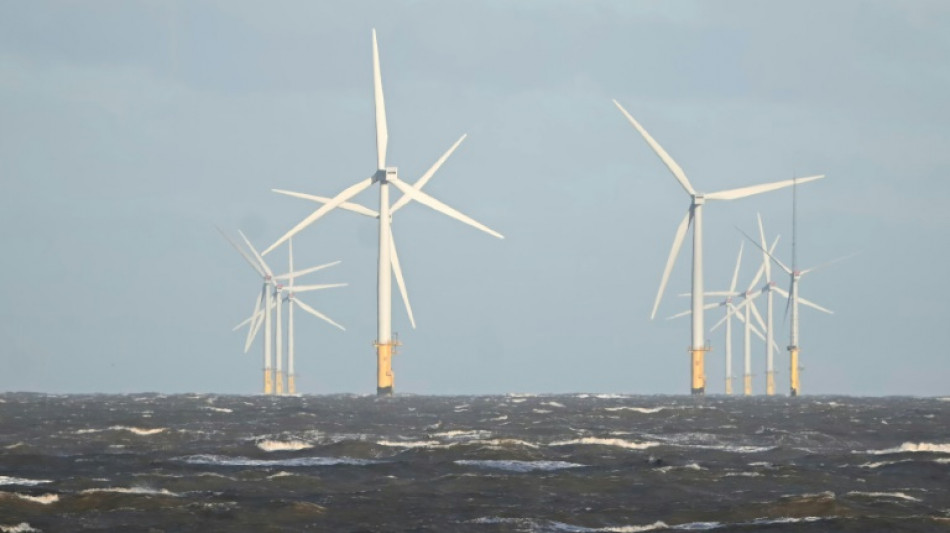

UK, Germany electricity cleanest on record in 2024
Britain and Germany produced their cleanest electricity on record last year, with renewables reaching record highs, according to data released Thursday.
Renewable energy like wind and solar accounted for 59 percent of production in Germany, while in Britain it stood at 45 percent, the data showed.
In Germany, where 2024 marked the first year without nuclear energy, the share of renewables increased to 59 percent from 56 percent the previous year, the country's energy regulator said in a statement.
Wind power retained its place as the nation's main electricity producer at 31.9 percent of the total, while the share of coal continued to decrease to less than 23 percent from 26 percent in 2023, it said.
The share of natural gas increased to 13.2 percent of the total, up from 8.6 percent.
Germany aims to have renewables make up 80 percent of its energy supplies by 2030 and to phase out coal by 2035.
Overall, Germany produced 431.7 TWh of electricity in 2024, a decrease of 4.2 percent compared with the previous year.
Imports increased to 13.8 percent, while exports declined to 10 percent.
- No more coal -
In Britain, oil, gas and coal together produced 29 percent of the UK's electricity in 2024 while renewables made up 45 percent, according to a report Thursday from the climate and energy website Carbon Brief.
Britain's last coal-fired power station closed in October, making the country the first G7 member to end its reliance on the fossil fuel for electricity.
The Labour government followed this up in November with plans to ban new coal mines.
Carbon Brief added that nuclear energy was used to produce 13 percent of Britain's electricity last year. A total 11 percent of Britain's electricity was imported.
Gas-fired power stations remained Britain's single-largest source of electricity in 2024, the analysis found.
However, Carbon Brief forecast that the country's wind power would likely generate more electricity than gas this year.
Prime Minister Keir Starmer's government has pledged to reduce UK greenhouse gas emissions by 81 percent on 1990 levels by 2035, as part of plans to reach net-zero by 2050.
Britain has spearheaded a push into low-carbon energy also as part of its strategy to combat sky-high electricity and gas bills, which rocketed after key producer Russia invaded Ukraine in early 2022 and sparked a cost-of-living crisis.
Energy bills remain at elevated levels in Britain as the country faces freezing temperatures at the start of the year.
A.Goretti--IM



